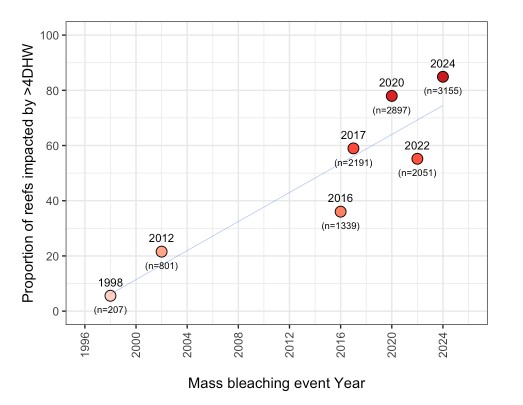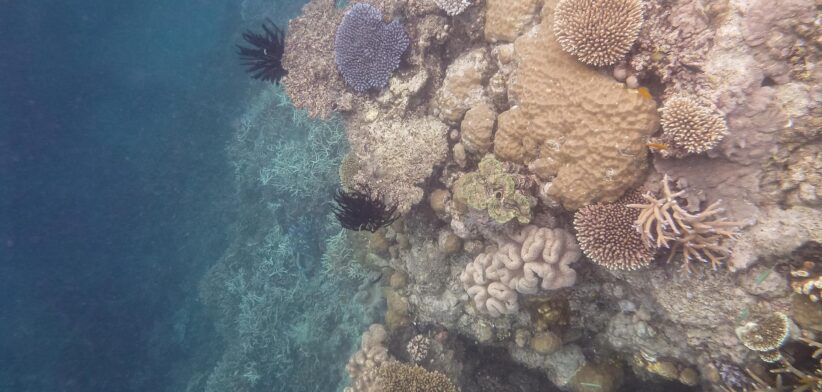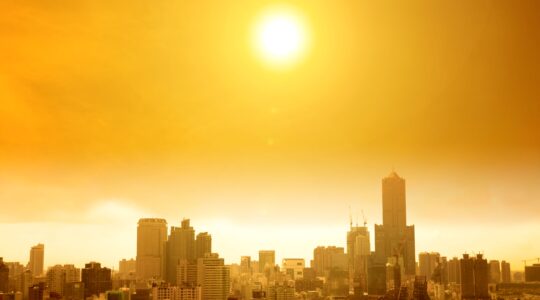Hot on the heels of video showing coral bleaching at never-before-seen depths on the Great Barrier Reef, new data shows the current event is on track to be the worst ever.
The Climate Council said the reef was experiencing its worst-ever heat stress with more than 80 percent of the reefs enduring dangerous levels of heating (more than 4 Degree Heating Weeks).
In a statement, the Council said surveys showed widespread coral bleaching affecting an area likened in size to the land burned during the Black Summer fires.
Last week the Australian Marine Conservation Society Marine reported video footage showing coral bleaching at greater depths of the ocean than previously recorded, and centuries-old corals succumbing to the extreme heat.
The Climate Council said recent reports from the Great Barrier Reef Marine Park Authority, the National Oceanic and Atmospheric Administration in the United States, and other experts revealed the Great Barrier Reef, as a whole, has been subject to a greater level of heat stress than during any of the previous six mass bleaching events.
It said almost half (46 percent) of the individual reefs that form the Great Barrier Reef experienced record heat stress and more than 60 percent of individual reefs across the Great Barrier Reef had shown “prevalent bleaching”.
Climate Council CEO Amanda McKenzie said an “underwater Black Summer” was ravaging the Great Barrier Reef.
“The survival of the Reef—and all life that depends on it—hinges on our willingness to drastically cut climate pollution in the 2020s, which means scaling up clean energy as quickly as possible so we can phase out coal, oil, and gas,” Ms Mckenzie said.
Climate Council Research Director Dr Simon Bradshaw said marine heatwaves, fuelled by climate pollution, had dealt blow after blow to the Great Barrier Reef.
“We’re likely now witnessing the most widespread and severe mass bleaching event ever recorded,” Dr Bradshaw said.
“Southernmost parts of the Reef, which had been largely spared previously, have been hit particularly hard this time, with bleaching affecting many more species, extending to greater depths, and affecting some of the oldest and most resilient corals.”









